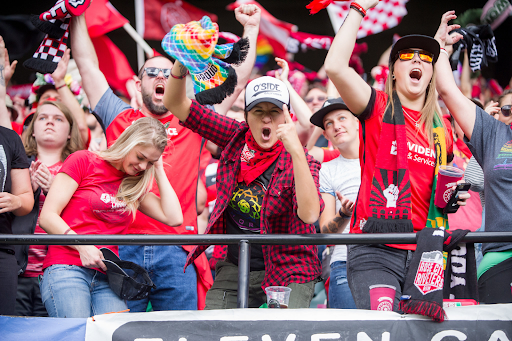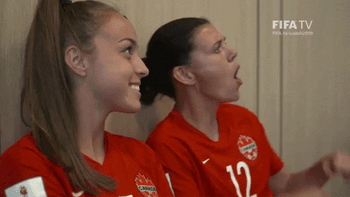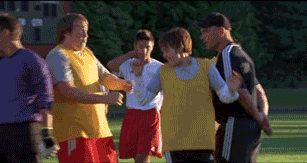Tylenol shares pain points for U.S. sports fans amid NWSL healthcare spending boost

The GIST: After inking a multiyear partnership with the NWSL earlier this year, Tylenol partnered with Wakefield Research to survey 2K U.S. sports fans to explore the pain points for soccer fans attending live sporting events. The results illustrate the natural marketing overlap for healthcare brands, which can utilize beloved women’s sports teams to appeal to fans.
- After all, that is how the industry is responding to the NWSL’s growth: Healthcare led all categories in spending in SponsorUnited’s inaugural NWSL Partnerships Report, with brands dropping over $30M in the last year. Some healthy spending.
The results: According to the data, 88% of respondents experienced pain or discomfort at games, with 49% citing exhaustion from heat and crowds, and 45% mentioning neck or back pain. Coinciding with this, 52% cited long queues as a “problem” at sporting events. Considering all these factors, 57% of fans decided to skip attending a game out of concern for enduring physical pain.
- When these fans do experience pain following games, the majority (55%) address it with OTC pain relievers, especially older generations. Baby boomers (74%) and Gen Xers (61%) do this at a higher percentage than millennials (54%) and Gen Zers (42%).
The landscape: Healthcare brands are embracing the market potential among women’s sports fans, from local hospital networks partnering with WNBA and NWSL teams to pharma brands like OPill and Eli Lilly doubling down on investments. Pain reliever brand Icy Hot has harnessed the power of athlete marketing for years, which Tylenol is capitalizing on further with a new Gotham FC deal.
- The SponsorUnited report confirmed that when healthcare companies spend in soccer, they go big. Three of the top 10 sponsorship deals over $1M were from healthcare brands, while the University of Kansas Healthcare System — the KC Current’s official healthcare provider and training facility sponsor — spent 15% of its sponsorship budget in the NWSL.
The takeaway: The industry is recognizing a missed opportunity with women consumers: Though they make 80% of healthcare decisions in the U.S., only one-third of pharma marketing accurately portrays women — even though accurate portrayals result in a 10x sales boost. And now, they have clear pathways to win over women’s sports fans through leagues like the NWSL.
- We’ve seen this in tennis, a sport striving for gender parity as it draws an older, more affluent fanbase. Hologic’s extensive WTA Tour title partnership boosted awareness and action among the sport’s 1B fans: A brand survey says 45% of respondents learned about women’s healthcare through the partnership, with 67% taking direct action because of its outreach.
- And just yesterday, Dutch pharma brand Argenx began headlining its new US Open partnership with 1991 and 1992 tournament champion Monica Seles, who is opening up about her myasthenia gravis (MG) diagnosis publicly for the first time in an awareness campaign. A winning approach.
Enjoying this article? Want more?

Sign up for The GIST and receive the latest women's sports business news straight to your inbox three times a week


